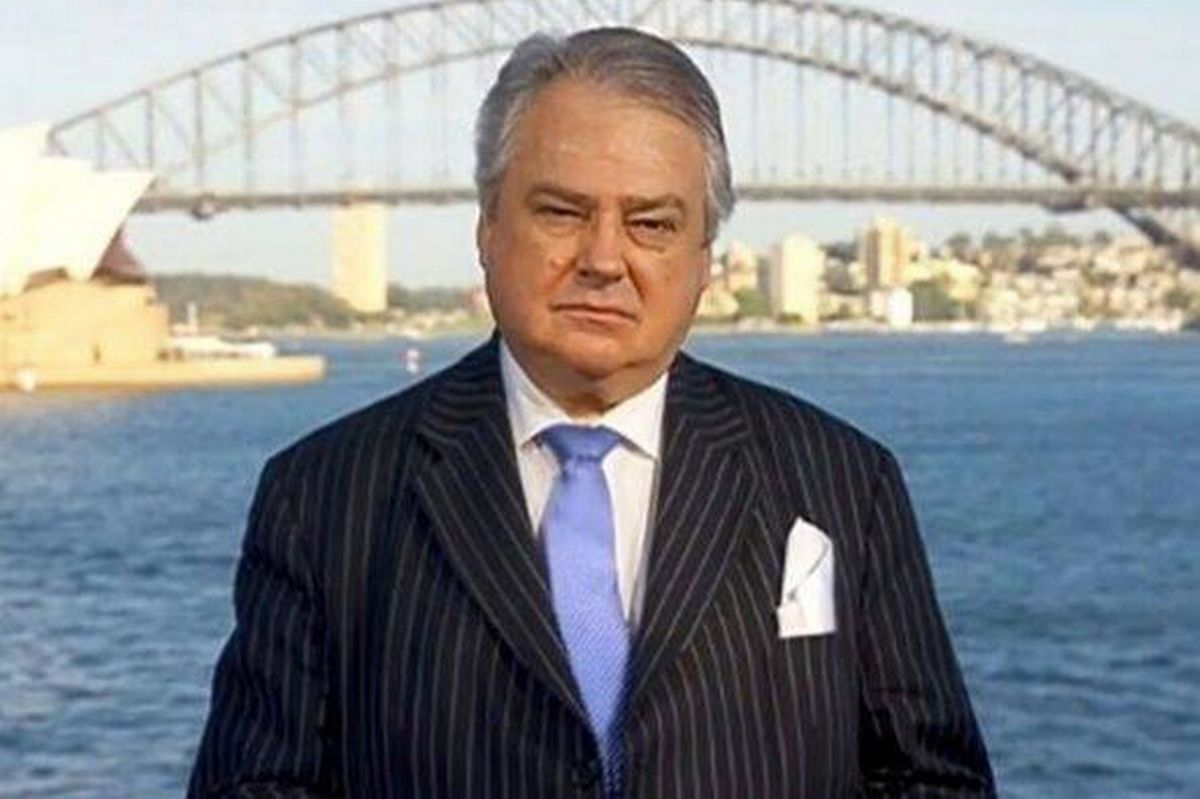The star died in hospital at the age of 77, his colleagues confirmed on TV.
Sunrise star Dr Keith Suter has died in hospital at the age of 77 this year, it has been confirmed.
The broadcaster’s death was announced by hosts Samantha Armytage, Natalie Barr, and Matt ‘Shirvo’ Shirvington as they delivered an emotional tribute to him live on air.
They revealed that the former Foreign Affairs Editor, who held three doctorates and chaired numerous international bodies, “passed away peacefully in hospital”.
The sad news was delivered by Nat, 57, and Shirvo, 47, on Sunrise early Friday morning (December 12). They opened the programme saying: “Before we heard the news, we just wanted to pay a quick tribute to a close friend and member of this Sunrise, Dr Keith Suter, who passed away peacefully in hospital this week.
“Keith has been part of the Sunrise and Seven family for so many years, the most brilliant mind, a calm and trusted voice on some of the most complex stories, and a joy to work with behind the scenes as well.
“He helped explain wars, elections, and global crisis upon crisis, but he always did it with measure so people felt safe, and this morning our thoughts are with his beautiful family.”
Samantha, 49, who previously co-hosted Sunrise from 2013 to 2021 with fellow presenter David ‘Kochie’ Koch, also posted a moving tribute to the late broadcaster on Instagram, reports the Express.
Posting a picture of the Australian expert in his element whilst presenting on the breakfast programme, she wrote: “Very sad to hear of the passing of Dr Keith Suter overnight. He was a wonderful man.
“He guided us through many of the biggest world issues of our time – with grace and humour. You could talk to him all day, and often during breaking news, we did. RIP Dr Keith.”
Meanwhile, Nat and Shirvo shared on air that viewers had already begun sending their condolences to Suter’s family, with one observer noting that the presenter “made complicated world politics comprehensible and will be sorely missed.”
Nat reflected: “World affairs is complicated, and I think a lot of people, you kind of almost feel like you pretend you know what it is about, but we got to ask him really basic questions and boy, did he explain it all to us.”
Shirvo added: “He spoke to the people, didn’t he? And he was a beautiful man with such a lovely manner. And I tell you what, he always dressed so, so well as well.”
Nat responded with a chuckle: “I know. We are really going to miss him… Our sincere condolences to his family, he will be sorely missed.”
Suter was renowned for his extensive career with Seven, where he educated Australian audiences about international affairs and simplified intricate geopolitical matters. He also served as a futurist and strategic planning adviser, boasting three doctorates from Sydney.
The broadcaster specialised in international law of guerrilla warfare, the social and economic impacts of the arms race, and strategic planning scenarios. His groundbreaking work in this arena caught significant attention.
The Australian Government presented him with its Peace Medal in 1986, and he later received recognition as Rostrum’s Communicator of the Year in 1995.
During the 2019 Queen’s Birthday Honours, he was appointed a Member of the Order of Australia for “significant service to international relations, and to the Uniting Church of Australia.”
He chaired multiple organisations, including the International Humanitarian Law Committee of the Australian Red Cross and the International Commission of Jurists (NSW). Additionally, he held positions as director of studies at the International Law Association (Australia Branch) and managing director of the Global Directions think tank.
The telly veteran featured across numerous programmes on both wireless and television discussing politics and international matters, holding the position of Foreign Affairs Editor for Channel Seven for an extended period.

